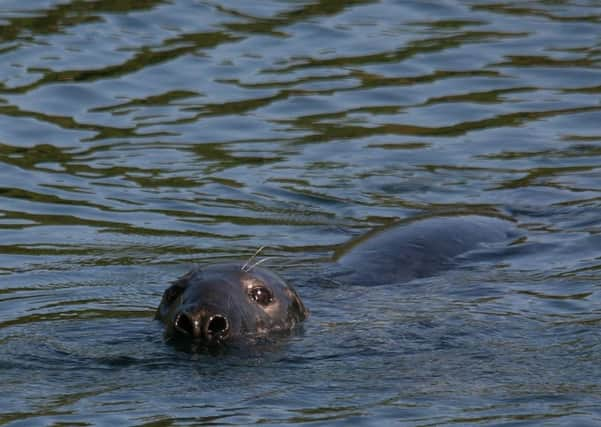U.S. zero tolerance on seal shooting


The push and pull between business and protection has more recently grabbed headlines when campaigners against the shooting of seals to protect fish-farms highlighted a new U.S law on imports, which could have the potential to damage the Scottish fish farming industry.
A new legislative rule will prohibit the import of any fish that doesn’t meet U.S. standards and it is illegal to intentionally kill or injure seals in any commercial U.S. fishing operation.
Advertisement
Hide AdAdvertisement
Hide AdThe new rule comes into force on January 1st, however there is to be a five-year period where regions will have a chance to comply.
Official figures reveal that fish farming companies shot 23 seals under licence from the Scottish Government in the first three months of 2016.
Talking about the issue Western Isles MSP Alasdair Allan said: ““Fish farming is one of the most important sectors for the Western Isles economy, providing hundreds of jobs across the isles.
“It should be noted that in 2011 the Scottish Government put an end to the unregulated shooting of seals by introducing a seal licensing system in Scotland.
Advertisement
Hide AdAdvertisement
Hide Ad“This authorised the shooting of seals only as a last resort to prevent serious damage to a fishery or fish farm. Having a license is not necessary and some fish farms choose to rely only on non-lethal deterrents instead.”
He added: “It is up to the companies exporting goods to other countries to make sure they satisfy those countries’ import laws.”
However campaigners have an opposing view of the U.S regulations and say they are attached to a region rather than any individual company, so that if a seal is shot anywhere in Scotland, then the import ban would apply to the whole industry.
John F. Robins, Secretary of the Save Our Seals Fund (SOSF) said: “The Scottish Government appears to be very confused over the issue and is currently under the mistaken belief that it does not have to take any action and can leave it to individual salmon farmers to decide whether or not to continue killing seals.
Advertisement
Hide AdAdvertisement
Hide Ad“They simply do not realise that if they fail to make shooting seals a criminal offence American customs officers will not let as much as a Scottish-caught pickled herring cross their border. Salmon farmers will lose well over £200m a year in exports.”
It remains to be seen who is right when it comes to the interpretation of the new rule, but certainly some fish farming companies are taking some positive steps forward in seal control. With one local company, Loch Duart, highlighting their commitment to non-lethal methods.
A spokesman for the company said this week: “Loch Duart has a positive story to tell about new investment in non-lethal methods of predator control.
“The company deploys ‘full pen’ predator nets in any site where strength of tide and currents allow, in our move towards non-lethal solutions. We have also achieved considerable success with acoustic deterrents in the Sound of Harris.”
Advertisement
Hide AdAdvertisement
Hide AdSince the Government put an end to unregulated shooting there has been a 65 per cent reduction in seals being shot between 2011 and 2015, perhaps in future this new U.S import rule will encourage those figures down to zero.